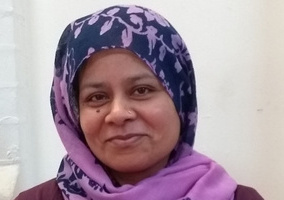The Chartered Institute of Fundraising (CIOF) has launched its equity, diversity and inclusion (EDI) Champions Mentoring Programme.
The programme intends to accelerate understanding of EDI concepts and applications, improve collaboration and innovation, enhance EDI confidence and knowledge and establish a culture of EDI accountability within volunteer groups, among other things.
The first intake will focus on five volunteer groups: Scotland, London & South East, West Midlands, Insight Special Interest Group (SIG) and Legacy SIG.
Mentors will look at purpose, allowing each individual mentee to ask questions and structure what they should focus on and prioritise throughout the rest of the programme.
The first half of the programme will be one-to-one sessions between each mentor and mentee.
After this, a further five EDI champions from across the wider CIOF volunteer network will be invited to join as additional mentees – with the aim to allow a wider pool of EDI champions to benefit from collaboration with their peers, take learnings and guidance to their volunteer groups and also benefit from the focused support, knowledge and experience of the mentors.
‘Everyone involved is fully committed to accountability’
Monwara Ali, chair of the CIOF's EDI Committee, recently spoke to Fundraising Magazine’s editor Stephen Cotterill about tackling EDI issues internally and across the sector.
Alongside Ali, the other EDI champions are Pennylope Kapere, Giada Ciccozzi, Graham Drew and Matt Parkes.
Ali said: “I am absolutely delighted that our EDI Champions Mentoring Programme has launched.
“Everyone involved is fully committed to accountability, ownership and best practice when it comes to EDI and I am very much looking forward to working with our first intake of volunteer groups, and eventually all the EDI champions, to ensure EDI becomes an integrated part of everyday work going forwards.
“Each of the initial five volunteer group mentees will have their own mentor who will work with them, utilising a combination of skills-based activities, and directive sessions with suggestions and examples of EDI approaches that have led to successful outcomes via non-judgmental support.
“We hope that this programme of support will enable mentees to become more proactive and confident in taking action around EDI, as well as helping to maximise their own personal strengths, and accelerate their EDI development.”
Related Articles












